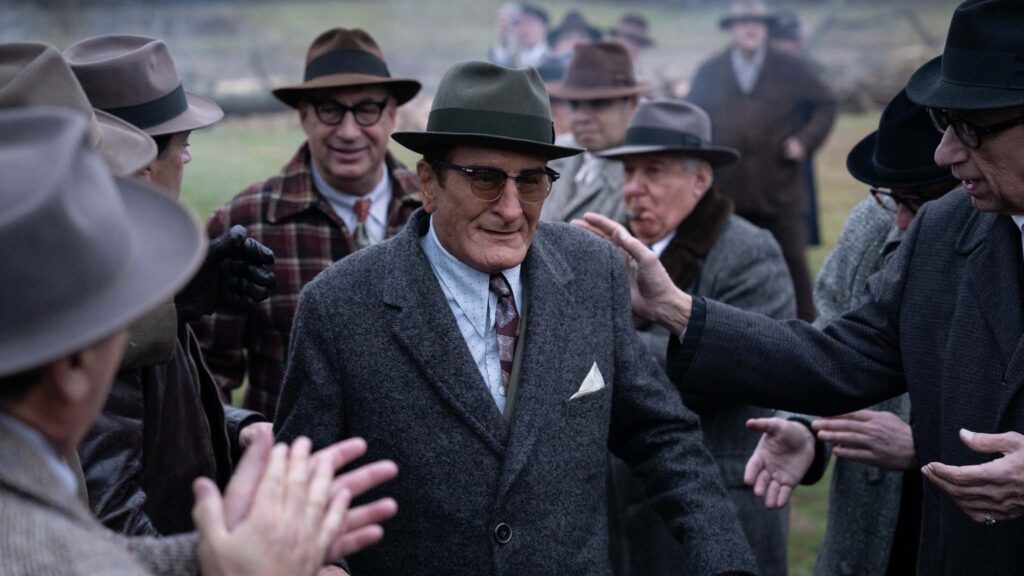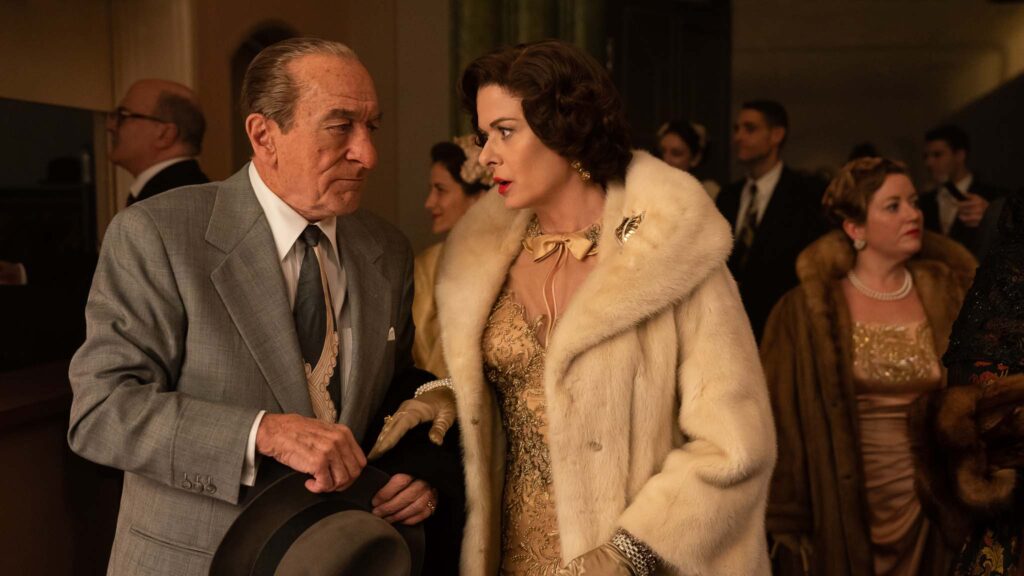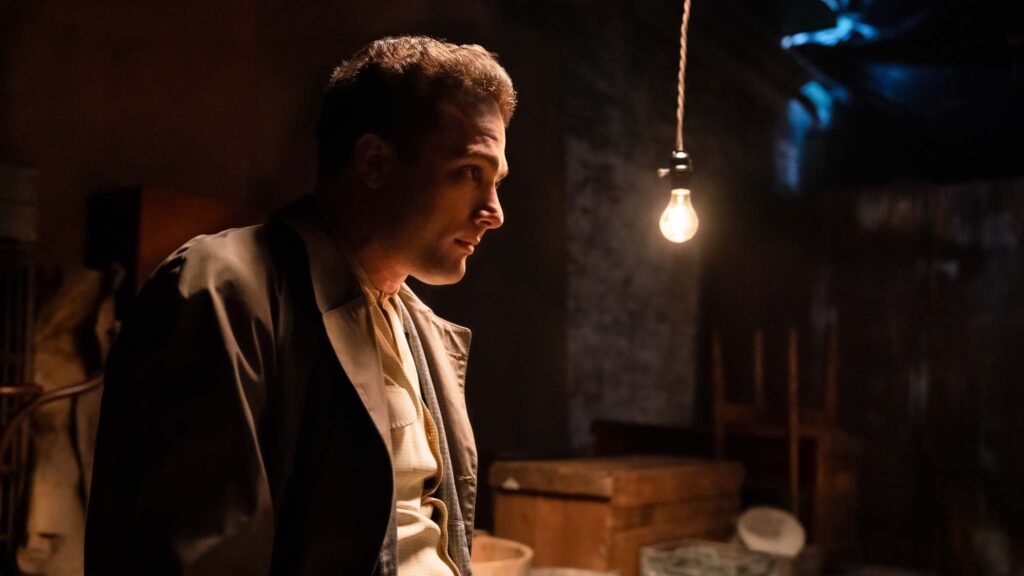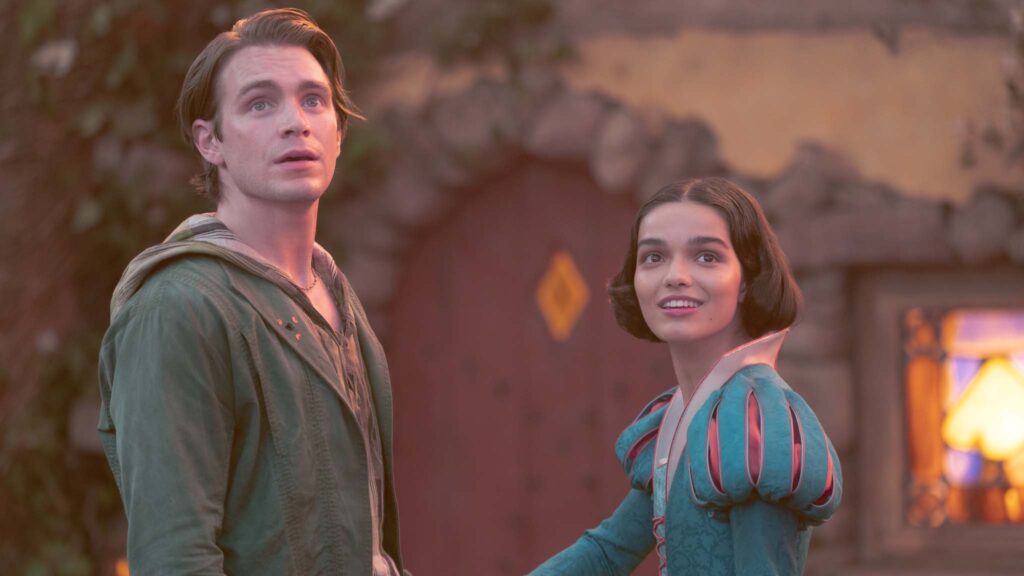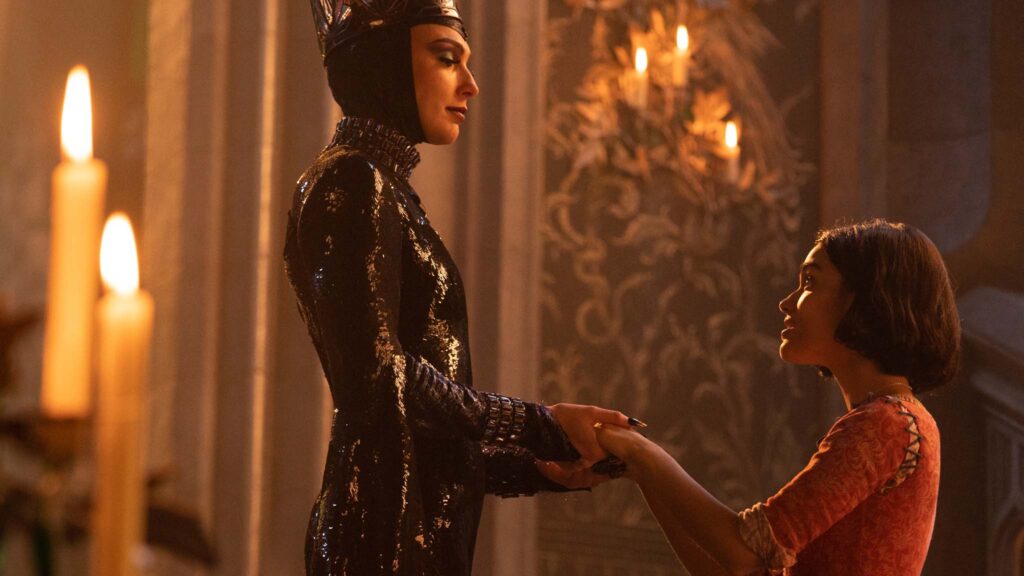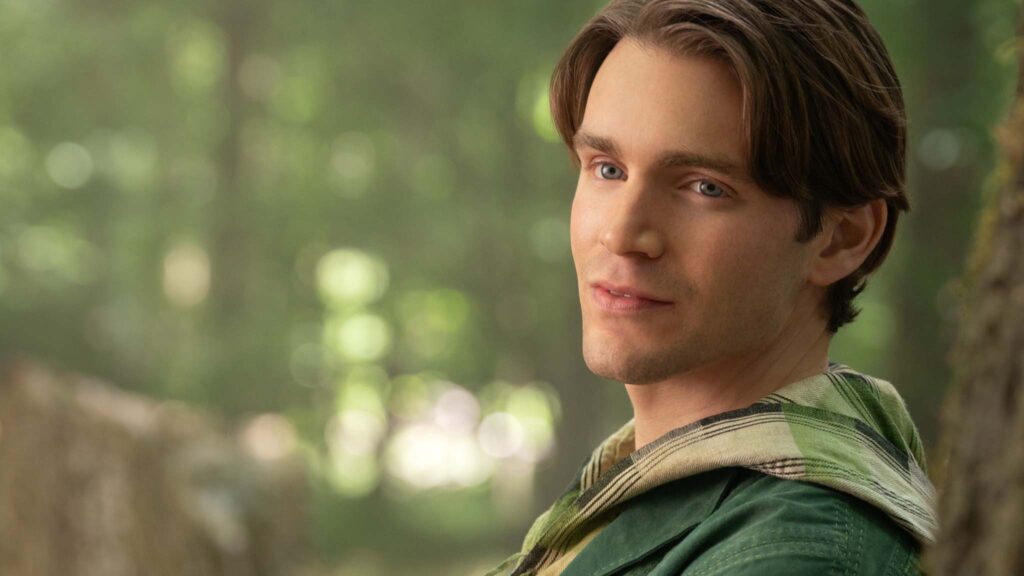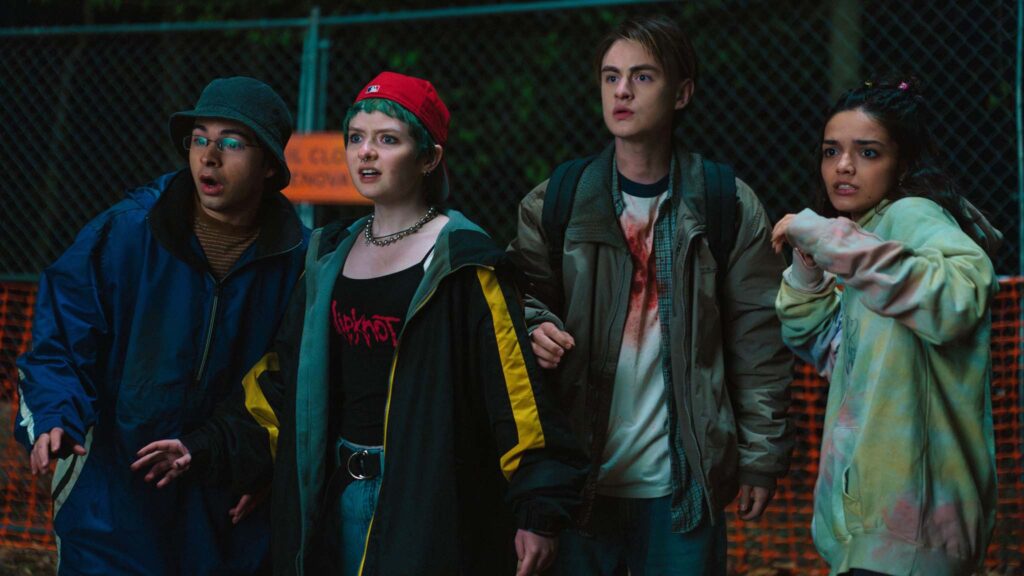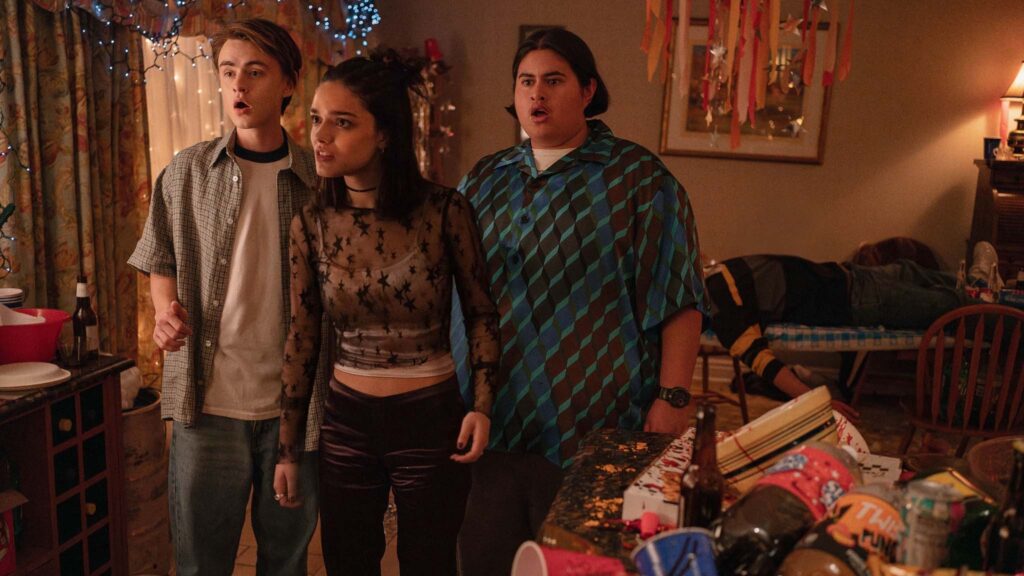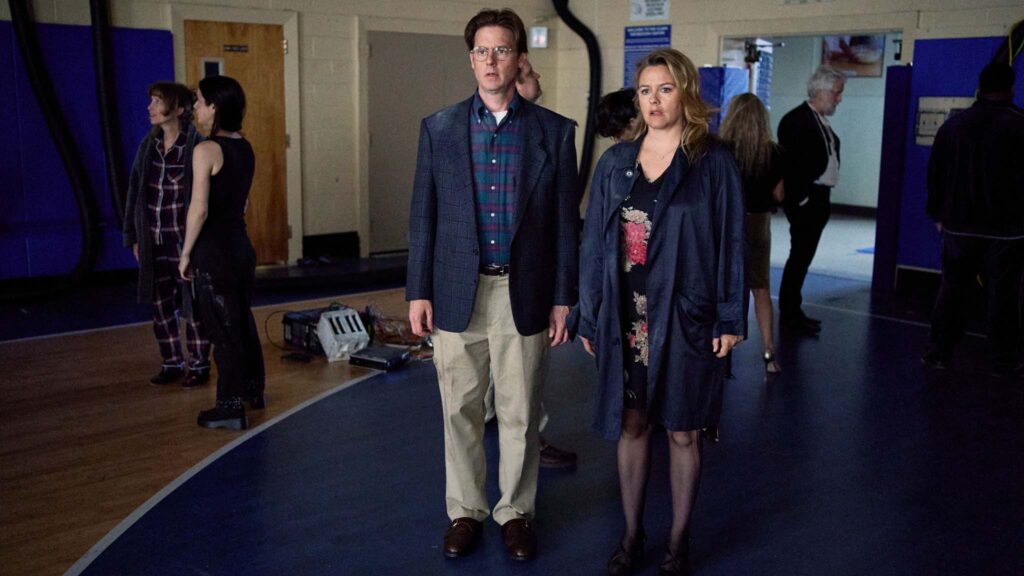Thriller
The Alto Knights (15)
Review: Bad blood spills easily after the first cut. In Michael Mann’s incendiary 1995 thriller Heat, Robert De Niro and Al Pacino’s sworn enemies trade verbal blows on opposite sides of a table in a busy diner. The memorable scene is soaked in tension and provides a delectable prelude to the bitterness and betrayal of a bullet-riddled second act. Director Barry Levinson’s gritty crime drama repeats the striking imagery of a tense face-off between rivals as a centrepiece. Here, digital trickery allows two De Niros to glower at each other from opposite ends of a booth at the Waldorf-Astoria in 1950s New York.
The Alto Knights is a slow-burning study of fraternal jealousy and deceit fashioned by Oscar-nominated GoodFellas screenwriter Nicholas Pileggi from true events, which tore the Mafia apart and forcibly reshaped the upper echelons of power in the Big Apple. Impeccable prosthetics and make-up allow De Niro to burrow beneath the skin of two ruthless men, who rose to prominence during Prohibition when the Land of the Free was controlled by “thirsty Americans, crooked cops and politicians”. Simmering resentment and paranoia gnaw at the bonds of trust, culminating in an assassination attempt in a hotel lobby.
Levinson’s picture opens in May 1957 in New York with a gun pointed at professional gambler Frank Costello (De Niro), head of the Luciano crime family and leader of the country’s Mafia bosses, as he waits for the elevator to his penthouse. The shooter, Vincent Gigante (Cosmo Jarvis), is operating under the direction of Frank’s onetime best friend, Vito Genovese (De Niro again), who has ordered the hit without the express approval of the other heads of the New York City Mafia families.
Frank survives and time rewinds to chart a blood-stained history punctuated by Vito’s tempestuous marriage to fiery-tempered Anna Vernotico (Kathrine Narducci). “She’s a moron. He’s a maniac,” warns Frank’s wife Bobbie (Debra Messing). An ugly marital dispute played out in court memorialises ties between Frank and Vito. Subsequently, Tennessee senator Estes Kefauver (Wallace Langham) spearheads a special committee to investigate crime in interstate commerce and calls forth Frank and Vito to testify. Frank ignores advice from his lawyer (Matt Servitto) to share his truth. “Only guilty people plead the Fifth,” he bullishly professes.
The Alto Knights stylishly evokes an era of backroom brotherhoods and secret handshakes to buy the silence and complicity of police and the judiciary. De Niro delivers markedly different and nuanced performances that immediately distinguish between Frank’s quiet, steely resolve and Vito’s fast-talking, coiled aggression. Impressive production design evokes the era of wise guys and droll dames with aplomb, wooing the eye when Pileggi’s script puts up its feet and reduces pace to a shuffle.
Find The Alto Knights in the cinemas
Musical
Snow White (PG)
Review: Rachel Zegler whistles while she works in an enchanting live-action reimagining of Disney’s 1937 animated fantasy based on the tangled tale spun by the Brothers Grimm. Screenwriter Erin Cressida Wilson adheres to core narrative elements of the animated incarnation including a sycophantic magic mirror, the fateful bite of a poisoned apple and wickedness undone by true love’s kiss.
In other respects, director Marc Webb’s Snow White hitches a royal carriage to modern sensibilities and political correctness, empowering another Disney princess to become the architect of her destiny and redefining Bashful, Doc, Dopey, Grumpy, Happy, Sleepy and Sneezy as magical creatures. There is no charming paramour on a steed – the romantic interest is a forest-dwelling bandit, who mocks the idea of Snow White waiting for a dashing prince to ride to the rescue when she can affect change if she will only “stop thinking, start doing”.
Heigh-Ho and Whistle While You Work have been upcycled to complement barnstorming new songs courtesy of The Greatest Showman’s ringmasters Benj Pasek and Justin Paul and their collaborators. The lyrical gymnastics are impressive. Snow White’s soaring anthem Waiting On A Wish, a response to I’m Wishing in 1937, incites the self-reflection, “Will she rise or bow her head?/Will she lead or just be led?” The Evil Queen’s slinky solo All Is Fair whoops, “Ambitious girls must be vicious girls/And, boy, they have fun!”
Fun is bountiful except for the seven motion-captured miners, whose digitally rendered countenances a la Gollum from Lord Of The Rings jar awkwardly with gargantuan physical sets and lavish costumes. Flesh and blood actors should have given the communal cottage-dwellers the Heave-Ho.
Snow White (Zegler) is raised to be fearless, fair, brave and true by her benevolent parents (Hadley Fraser, Lorena Andrea). The Good Queen dies and a scheming enchantress (Gal Gadot) replaces her on the throne, using intimidation to bully subjects into submission. When the Magic Mirror (voiced by Patrick Page) decrees Snow White to be the fairest of them all, the stepmother plots filicide by the blade of a Huntsman (Ansu Kabia) and the princess tumbles into the forest home of spirited rebel Jonathan (Andrew Burnap) and his merry band.
Putting aside the widely publicised disagreements that have scorched Snow White’s live action refurbishment, Webb’s musical fantasia is a visually sumptuous waltz through wholesome fairy tale tropes. The stirring choral chant of Good Things Grow might be sonically adjacent to This Is Me but Zegler wrings every droplet of tremulous emotion from her rendition. Gadot’s psychotically vain tyrant could be more murderous and menacing without compromising the family-friendly film classification but her sustained downfall is dramatically satisfying compared to a fortuitous lightning strike. Beneath storm clouds of controversy, there are soothing rays of sunshine.
Find Snow White in the cinemas
Horror
Y2K (18)
Review: Party like it’s 1999 with first-time director Kyle Mooney’s uneven horror comedy set as a curtain falls on the 20th century, when burning CD mixes was de rigueur, tell-tale chirrups of dial-up modems heralded agonisingly slow intetnet access and social media wasn’t even a glimmer on the horizon. Simpler and, in some ways, happier times.
I have vivid memories of December 31, 1999 and media-fuelled hysteria about the so-called Y2K bug, which was predicted to wreak havoc on computer systems around the world that might misinterpret the new two-digit year as 1900. After months of feverish doom-mongering, the dawning of a new millennium delivered precious few technical gremlins. The lights stayed on and our overpopulated third rock from the Sun continued to turn.
In Mooney’s picture, nightmarish predictions are realised and an “interconnected super-consciousness” gives birth to sentient machines and electronic devices on a mission to kill puny humans. A Tamagotchi fuses with a hand drill, a motorised bed catapults one unfortunate soul to eternal slumber and an electric blender targets fleshy parts to whirr to a crimson pulp. In the midst of mayhem, a script co-written by Mooney and Evan Winter lurches awkwardly from buddy comedy and stomach-churning horror to heart-tugging tragedy, building to a lacklustre final stand galvanised by words of wisdom from Limp Bizkit front man Fred Durst. The end of the world should be more exciting than this.
Best friends Eli (Jaeden Martell) and Danny (Julian Dennison) resolve to gatecrash a New Year’s Eve party attended by peers from Crawford High School and – just maybe – kiss a girl. Popular classmate Laura (Rachel Zegler), the unattainable object of Eli’s desires, will be there, pursued by the host of the party, Chris (Charlton Howard). Shortly after the countdown to midnight, there is a temporary power outage and various appliances and gadgets come to life, under the control of a centralised intelligence that intends to use the electricity from human brains as a power source for the mechanised uprising.
Danny, Eli and Laura escape the initial onslaught along with hip hop crew buddies Ash (Lachlan Watson), CJ (Daniel Zolghadri) and Farkas (Eduardo Franco). Survivors identify an old factory outside town as a sanctuary because the property doesn’t have electricity. En route, Eli suggests Ash should destroy her beloved video camera before it rebels against her. “That’s like, racism against machines,” she angrily retorts.
Y2K is a well-meaning misadventure that can’t clearly articulate its genre-melding intentions. Dennison is a powder keg of irresistible exuberance and every time he is off screen, the party poops. In the final 30 minutes, Mooney’s picture feels as agonisingly slow as downloading a picture before the arrival of broadband.
Find Y2K in the cinemas


